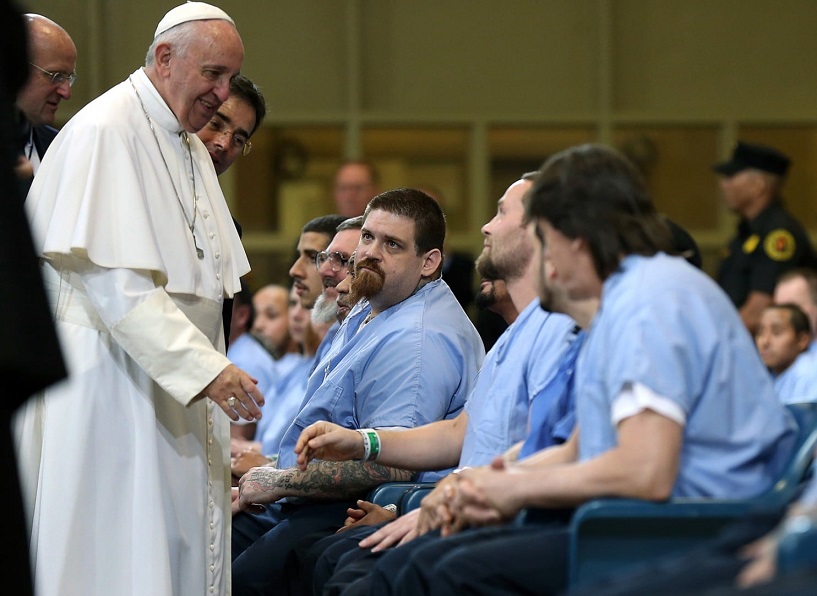(This is part four of a multi-part series that IRD will publish throughout the week of May 6-12. Read part one by clicking here, part two by clicking here, or part three by clicking here.)
The relationship between the church, state, and civil society is a complex one that is defined by tension. The church, however, does not need to become “political” as though it is imperative for the church to take policy stands or protest. In fact, the most “political” thing the church can do is to proclaim the gospel, receive the sacraments, and pray to God. The church is a witness to the gospel and in doing so it clarifies for the government what its proper role is. This is not a passive stance nor a retreat into purity. It is a realization that the Kingdom of God shall come only by God’s own decision and agency. What the church must keep first and foremost before the government is a memory of God’s redeeming work in Jesus Christ. The righteousness of God has been revealed from heaven in the life, death, and resurrection of Jesus and the church is a witness to that righteousness by which men are made right with God. That divine righteousness stands in judgment on all human righteousness, including the righteousness of our government and its laws.
The church attests to the only faith, hope, and love of all humanity, to the city of God that shall be established by God and filled with peoples of all tribe, tongue, and nations whom God has called. All Christians are sojourners in this life, “For here we have no lasting city, but we seek the city that is to come” (Heb. 13:14). Karl Barth writes,
The Church cannot, however, simply take the Kingdom of God itself into the political arena. The Church reminds men of God’s Kingdom. This does not mean that it expects the State gradually to become the Kingdom of God. The Kingdom of God is the Kingdom where God is without shadow, without problems and contradictions, where he is All in All: it is the rule of God in the redeemed world…The Christian community within the State does know about the Kingdom of God, however, and it brings it to man’s attention. It reminds men of the Jesus Christ who came and is to come again.[1]
The church points to the Kingdom that is to come, the Kingdom of perfect righteousness in which God shall be All in All: “Behold, the dwelling place of God is with man. He will dwell with them, and they will be his people, and God himself will be with them as their God. He will wipe away every tear from their eyes, and death shall be no more, neither shall there be mourning, nor crying, nor pain anymore, for the former things have passed away” (Rev 21:3-4).
In the meantime, government has a fundamental and legitimate role to play which is assigned to it from God: judging wrongs so that peace and order be maintained. But the church does not take this to be the final pronouncement of divine justice. In fact, we are all lawbreakers and God’s dealing with us was not one of exacting retribution but to send his Son, in human flesh, to die on our behalf in order to pay for the punishment of our sins and to rise again as the first fruits of the new creation. Governments punish lawbreakers and send them to jail. Christians visit those very people in jail, not because they are innocent, but as a witness to a social order and law that stands above our own and as a display of the mercy of God. It reminds government that their judgments are imperfect, at best, and that their laws and activities are not the final word for human life. The government now punishes, but this is not what God has planned for his beloved creatures in his Kingdom.
What the church, at its best, provides is a glimpse into the new life and city that shall be brought to its fullness in God’s good timing. This provides for a form of social relations now that transcends political life. Government makes this possible for us, but the life of the church filled with the Holy Spirit is marked by love, which a government cannot bring about lest it become tyrannical.
[1] Community, State, and Church: Three Essays (Gloucester, MA: Peter Smith, 1968), 168.





Comment by Mary Frances Begley on May 10, 2019 at 10:45 pm
The government is on His shoulder—we as Christians must legislate andcrule according to righteousness—we pray and we watch and faith without works is dead!!